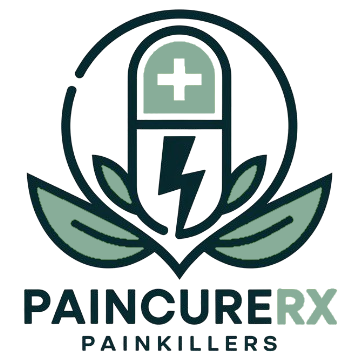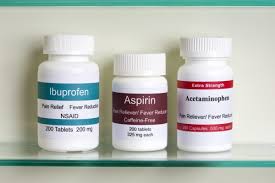Most are safe and effective when taken properly

It can be overwhelming deciding which over the counter (OTC) pain medicine to take for different aches and pains. There are many to choose from at your local drug store. The most appropriate usually depends on the type of pain you’re experiencing and your health.
Most nonprescription pain medicines are good at reducing pain as a symptom when taken for short periods and as recommended. But caution should still be taken.
“With any of these pain relievers, always read the labels and discuss any questions about dosage, safety, or prescription interactions with your doctor,” says David Miller, MD, a family medicine physician at Scripps Clinic Rancho Bernardo.
Contact your physician also if your pain reliever isn’t working for you. Your physician can check for any underlying condition that might be causing your symptoms.
Types of pain
OTC pain relief medications can help provide relief for different types of acute pain.
The Centers for Disease Control and Prevention defines acute pain as pain that has lasted for less than a month and has a known cause, such as an injury, trauma, surgery or infection.
Chronic pain, which is pain lasting three months or more, can also be managed with OTC pain medicines.
Types of OTC pain relievers
The two main types of OTC pain relievers are acetaminophen and nonsteroidal anti-inflammatory drugs (NSAIDs). They work differently on the body.
Acetaminophen blocks pain messages in the brain. NSAIDs, which include aspirin, ibuprofen and naproxen, work by reducing the level of chemicals involved in inflammation.
Acetaminophen Pain relief without prescription
Acetaminophen (Tylenol) is a used to relieve mild to moderate pain. It is particularly effective for treating headaches and reducing fevers.
“Acetaminophen is often the OTC pain reliever I recommend first for minor ailments,” Dr. Miller says.
“It is very safe when taken appropriately and is less likely to cause stomach irritation than an NSAID. Pregnant women can take it, as well as the very young, including infants and children with fever.”
As with any medication, follow instructions and stay within the daily limit allowed. Be careful not to take too much without knowing it. Acetaminophen can be found in many cough and cold products, including NyQuil and TheraFlu. Taking too much acetaminophen can harm your liver, perhaps permanently.
Aspirin Pain relief without prescription
Aspirin (Bayer, Bufferin) is one of the oldest pain relievers, used to reduce pain, swelling and fever. It is also used to help prevent blood clots.
Aspirin, an NSAID, is not recommended for everyone and should always be taken as directed.
Aspirin may cause side effects, including nausea, vomiting, stomach pain and heartburn. Physicians nowadays recommend other more effective pain relievers.
Aspirin should not be given to children and teens as it has been linked to an increased risk of Reye’s syndrome, a rare but serious condition that causes swelling in the liver and brain.
“Adolescents and children should never be given aspirin for flu-like symptoms, chickenpox and other viral illnesses due to the risk of Reye’s syndrome,” says Dr. Miller.
Aspirin has special benefits for people with heart disease. It is widely used to help prevent and manage heart disease and stroke in people with a high risk.
Aspirin thins out platelets, the cells responsible for blood clots, which can contribute to strokes and heart attacks. Clotting can clog the arteries supplying the heart and brain. Other NSAIDs are not recommended for people with heart disease, high blood pressure or other risk factors.
Ibuprofen
Ibuprofen (Advil, Motrin) is an NSAID that can be used to treat pain and inflammation and reduce fever. It may be more effective for some symptoms or conditions, depending on the type of pain.
“I often recommend ibuprofen for menstrual cramps and sore muscles,” explains Dr. Miller.
“Ibuprofen is less of a stomach irritant than aspirin and has less of a blood-thinning effect if you have any conditions where loss of platelets would be a concern,” he says. “However, it’s important to note there have been some concerns that ibuprofen can contribute to kidney damage if not used correctly.”
Naproxen Pain relief without prescription
Naproxen (Aleve) is the most powerful anti-inflammatory pain reliever available without a prescription. It is especially effective for sprains, sunburns and arthritis and other conditions.
Similar doses of Naproxen tend to last longer than other non-prescription pain relievers. They can last eight to 12 hours, compared to four to eight hours. Fewer tablets can be taken during the day.
Naproxen is not recommended for people over 65. Older adults are more likely to have side effects, such as ulcers and bleeding.






